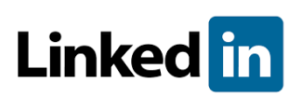‘Blatant Sales Pitch’ on LinkedIn Likely Violates Non-solicitation Clause–Mobile Mini v. Vevea
 This is a noncompete dispute. Defendant Vevea worked for Mobile Mini. She signed an agreement with Mobile Mini restricting her post-employment activities. Specifically, she agreed:
This is a noncompete dispute. Defendant Vevea worked for Mobile Mini. She signed an agreement with Mobile Mini restricting her post-employment activities. Specifically, she agreed:
- not to work in the Portable Storage Business at a location within fifty miles of Mobile Mini’s Lino Lakes office for six months;
- not to make any Portable Storage Business sales to [Mobile Mini] customers for nine months;
- not to directly or indirectly solicit [Mobile Mini] customers . . . or make referrals for profit related to [Mobile Mini] customers . . . for twelve months;
- not to poach current or former Mobile Mini employees with whom [she] interacted . . . for twelve months.
Following her departure, she started working for LSI, a logistics company. LSI and another company “Citi-Cargo” are owned by the same parent. Vevea posted the following to LinkedIn:
I’m excited to have joined the Citi-Cargo sales team! We lease and sell clean, safe, and solid storage containers and offices. . . We offer same day delivery to the Metro, and have consistent rental rates with true monthly billing. Give me a call today for a quote.
The post included photos of Citi-Cargo containers. She made a second post that stated:
Call me today for a storage container quote from the cleanest, newest, safest, and best container fleet in the State of Minnesota. Let’s connect! [phone number]
Mobile Mini sought a preliminary injunction. The court says there is a “relatively strong” likelihood that Mobile Mini will succeed on its claim that Vevea violated the non-solicitation provision. It says Vevea made two “blatant sales pitches” on LinkedIn on behalf of Citi-Cargo. Vevea argued her posts were “mere status updates” but the court disagrees, noting that the purpose of the posts was to “entice members of Vevea’s network to call her for the purpose of making sales”. The court says that the available information indicates that Vevea’s network includes at least one Mobile Mini customer.
The court also says that Vevea’s position on the duration of the noncompete (which differed from Mobile Mini’s position by several months) indicates there is a threat of continuing violations.
The court grants the request for injunctive relief in part. Mobile Mini sought to “restart” the noncompete and nonsolicitation clock. The court rejects this request. However, the court orders Vevea to remove the LinkedIn posts in question and cease any such future posts within the limitations period. The court says this restrictions extends to other social media sites where Vevea may have friends who are Mobile Mini customers. The court does permit Vevea to post “status updates”. The court also enjoins Vevea from violating other parts of her noncompetition and nonsolicitation agreement.
__
Kudos to Vevea for cracking the LinkedIn code! Many professionals continue to wonder about the purpose of that site, but the defendant in this case has no such questions.
We’ve blogged one LinkedIn non-solicitation case before. There, a company agreed to a non-solicitation clause and the court said that a general job posting did not violate this clause. (See “Job Posting to LinkedIn Group Doesn’t Violate Non-Solicitation Clause — Enhanced Network Solutions v. Hypersonic Technologies.”) This is the first case I’ve come across tackling this issue from an employee standpoint. The court draws a link between sales pitches and status updates. Perhaps the posts in question were over the line enough that this distinction works in this case, but I suspect future cases may be tougher.
The court does end up taking a pretty expansive view of what constitutes a sales pitch made to a customer in violation of a non-solicitation clause. Presumably, the defendant could have posted an advertisement that encouraged individuals to call her without running afoul of the restriction. Perhaps she could have distributed leaflets. But a post on LinkedIn crosses the line, due the the existence of a single customer (who may not have even seen the post in question).
Case citation: Mobile Mini v. Vevea, 2017 U.S. Dist. LEXIS 116235 (D. Minn. July 25, 2017)
Related posts:
